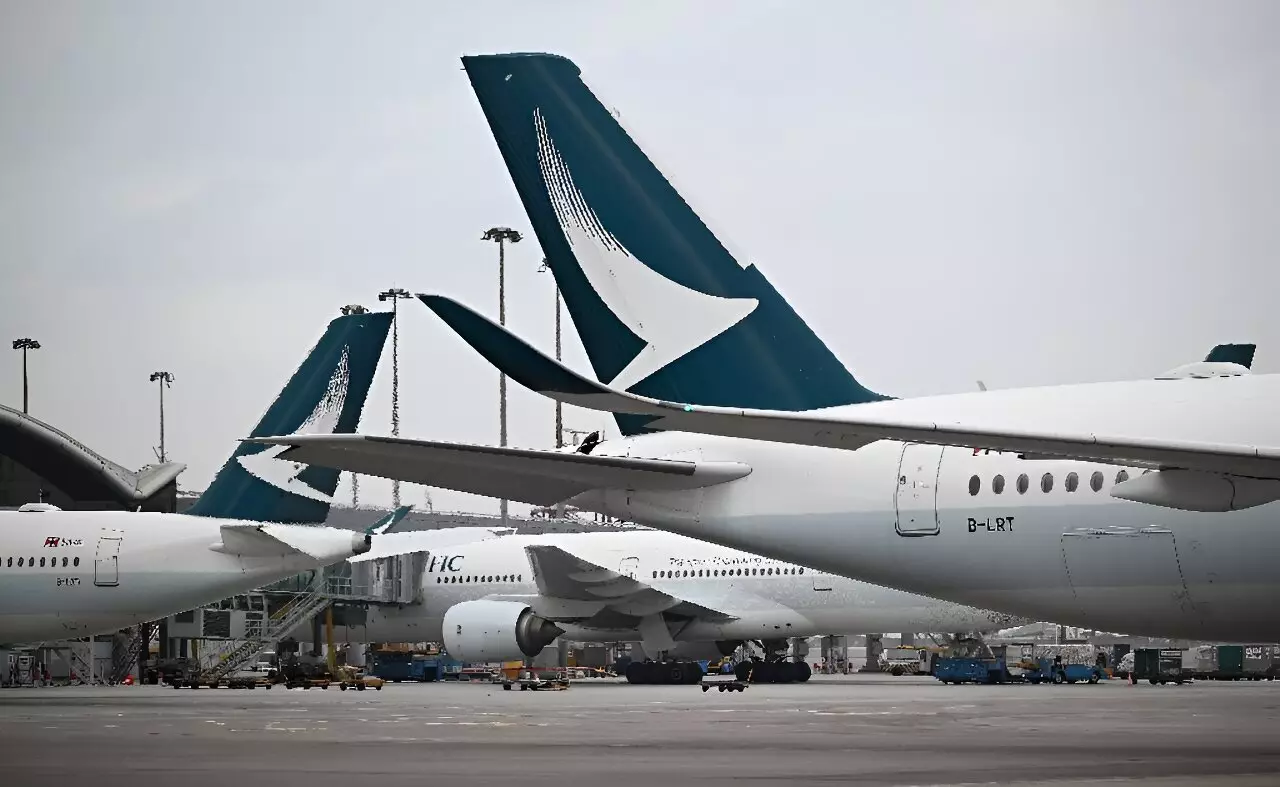Cathay Pacific, a major operator of the Airbus A350 jetliner, announced that it will be resuming full operations by Saturday after facing issues with defective engine fuel lines. The Hong Kong-based airline had grounded 48 of its planes for checks after a Zurich-bound flight had to return to the city shortly after take-off.
Replacement of Engine Fuel Lines
Upon inspection, it was discovered that components on 15 of the A350s, which are powered by British manufacturer Rolls-Royce, needed to be replaced. Cathay Pacific confirmed that 15 aircraft were identified with engine fuel lines that require replacement. Of these, six have already undergone successful repairs and are cleared to operate, with the remaining nine expected to resume operation by Saturday.
The incident led to the cancellation of 90 flights between Monday and Saturday, primarily affecting regional routes including connections to Singapore, Taipei, Tokyo, and Bangkok. Passengers expressed concerns about the safety of the aircraft, with one Hong Kong passenger mentioning that they were worried but had no way of knowing if the plane had been checked.
Response from Other Airlines
Following Cathay Pacific’s actions, other airlines in the region, such as Japan Airlines, Thai Airways, and Singapore Airlines, conducted checks on their A350-900 and A350-1000 models. Japan Airlines reported that three of their A350 jets showed no issues, while two more were undergoing inspections. Thai Airways stated that they were operating their A350 planes as normal, and Singapore Airlines confirmed that there was no impact on flights operating with their A350-900 fleet.
In Europe, Air France, which uses A350-900 models, stated that they were in contact with Airbus and Rolls-Royce and had not been advised or mandated to perform any checks. Meanwhile, Qatar Airways in the Middle East reported that there had been no impact on the operation of its Airbus A350-1000s and that they were closely monitoring the situation. With 24 A350-1000 aircraft in its fleet, Qatar Airways is the world’s largest operator of this model.
Expert Analysis
Aviation expert Terence Fan from Singapore Management University highlighted the urgency and critical importance of fuel flow in aircraft affected by defective engine lines. He pointed out that while mechanical issues can be resolved by replacing parts, it was concerning that one-third of Cathay Pacific’s A350 fleet was affected by the problem. Fan emphasized the risks associated with mechanical failures in long-haul flights that traverse vast distances with limited diversion options.
History of Issues
The incident involving Cathay Pacific is not the first time that airlines have faced challenges with the Airbus A350. Emirates and Qatar Airways have both raised concerns about the durability and longevity of A350 engines in the past. Qatar Airways previously grounded its A350 jets due to paint peeling on the exterior, leading to doubts about the aircraft’s safety.
Despite the challenges faced by airlines operating Airbus A350 planes, manufacturers like Rolls-Royce continue to work on improvements to enhance the durability of their engines. The aviation industry remains vigilant when it comes to addressing mechanical issues to ensure the safety and reliability of aircraft in the air.


Leave a Reply